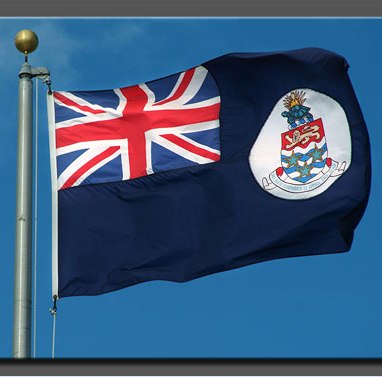Local laws need to be read in line with constitution
 (CNS): As the country’s top civil servants get down to co-ordinating the implementation of the bill of rights, senior civil servants heard from the attorney general that all of the country’s existing laws must be interpreted as though they were made in accordance with the constitution. According to the latest minutes from the meeting of civil service bosses released by the deputy governor, the main focus for government department heads is to revise and draft policies and procedures to ensure compliance with the Bill of Rights. The minutes show that chief officers have been asked to the bill and identify areas within their departments that may be vulnerable and could result in human rights challenges.
(CNS): As the country’s top civil servants get down to co-ordinating the implementation of the bill of rights, senior civil servants heard from the attorney general that all of the country’s existing laws must be interpreted as though they were made in accordance with the constitution. According to the latest minutes from the meeting of civil service bosses released by the deputy governor, the main focus for government department heads is to revise and draft policies and procedures to ensure compliance with the Bill of Rights. The minutes show that chief officers have been asked to the bill and identify areas within their departments that may be vulnerable and could result in human rights challenges.
The Bill of Rights comes into effect in November of this year and even if laws have not been amended to meet the new heightened level of rights of the people they must be read as such as is the case with all of Cayman’s legislation which has not yet been revised to meet the 2009 Cayman Islands constitution.
At the senior management meeting the civil service bosses heard that policies and procedures likely to fall foul of the bill would be a priority for modernising and all updated documents should be sent to the Attorney General Chamber’s for review.
Other issues discussed at the 27 February meeting was the fourth phase of the Public Sector Review and a subcommittee comprising of Dax Basdeo from financial services, Alan Jones from the ministry of district admin and Eric Bush from internal and external affairs would work with the Deputy Governor to start the review and report back to the Chief Officers.
The need for consistency in HR Policies was also discus in particular flexi-time for public employees as well as their rights to work outside their jobs as civil servants.
Ian Fenton explained that currently the start times for non-shift employees throughout the civil service range from 7:30am to 9:30am and workers who wish to engage in private gainful activity are required by the PSML to first obtain their ChiefOfficer’s approval. The portfolio has now been taskedwith draft policies on flexi-time and private gainful employment to ensure consistent application across the service.
The minutes also reveal that the 2011/12 supplementary budget and 2012/13 budget are now due for submission to the Budget Management Unit.
Category: Local News


The question is do the Chief Officers really understand the, "Areas within their departments that may be vulnerable and could result in human rights challenges."
Based on some recent events I seriously doubt it.
When Wales formed their devolved assembly in the UK it took a team of specialist lawyers to sort through the proposed Welsh legislation and pick out any areas of conflict with ECHR. It has proved to be money well spent. The Cayman Islands might do well to follow that example and not try to 'wing' it.
And the Constitution will in turn need to be read in line with the European Convention of Human Rights which has higher normativity.
and if there's anything we need more of it's that higher normativity.
I would not make jokes about things you don't understand. One can become unstuck quickly that way.
That's easy since the Bill of Rights gives full effect to the Convention.
You don't honestly believe that do you? There are many of the basic core rights that will need to go up to London or Strasbourg before they become part of Cayman law.
Absolutely. We had two expert constitutional lawyers that said so.
If compliance was the goal the Constitution would just have incorporated the ECHR as the UK did with the Human Rights Act. Instead there is a watered down rights provisions with derogations which are not provided under the ECHR and which would not survive a well organised challenge. From the right to vote and stand in elections, to the right of permanent residents to work without paying fees, to free schooling for all children, one does not need to look far to see obvious situations where Cayman is not and will not be rights compliant.
It doesn't appear that you have read the Bill of Rights in the Constitution very thoroughly. If you had you would know that it contains a right to education and since the Constitution does not permit discrimination with respect to constitutionally enshrined rights it means that all school children resident in the Islands must be treated equally once the Bill of Rights comes into force in November. You should also understand that you what you refer to as "derogations" are well within the margin of appreciation of interpreting those rights in our particular context. But sabre rattle if you must; it won't change anything.
Whether the derogations are valid will be an issue to be decided in London or Strasbourg. They will not be judged by the myopic standards of self-referential "reasonableness" of the Cayman Islands.
They will be judged in the context of the Cayman Islands including factors such as the proportion of the expat population to the Caymanian population.
Right – but our legislators pass the laws and there is no evidencce that certain of them are particularly concerned with what the Constitution, or other legislation for that matter, says.